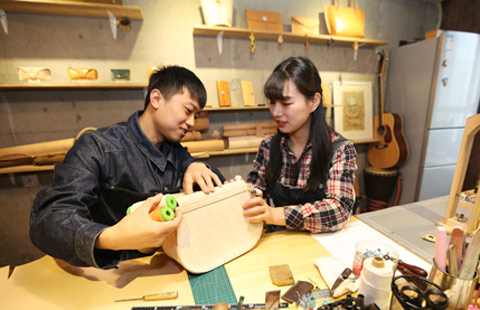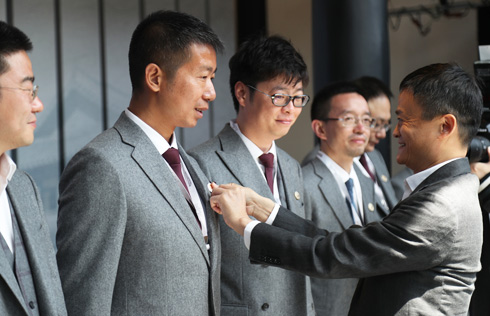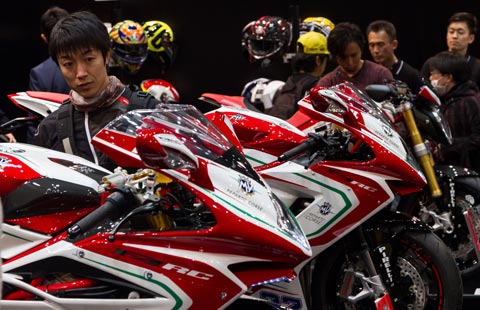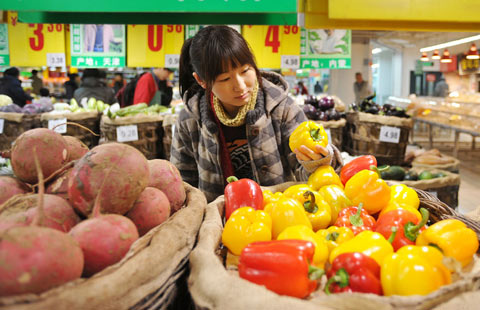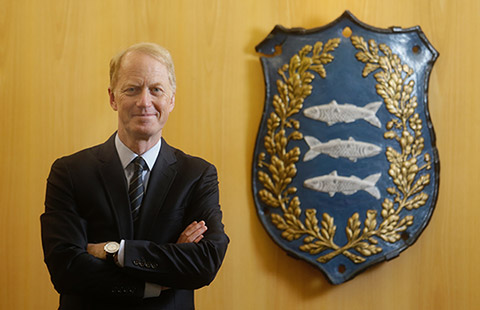Riding opportunities in 'huge unmet needs'
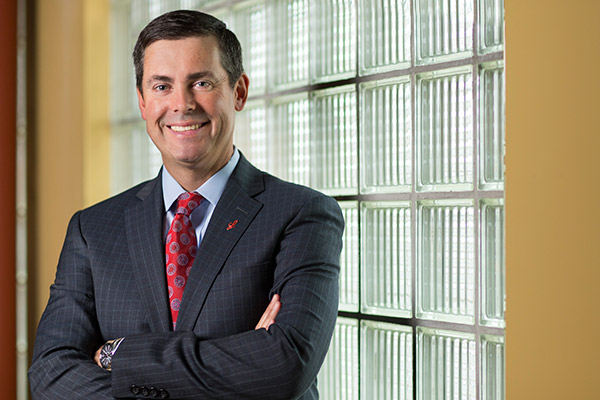 |
|
David Ricks, CEO of US pharmaceutical company Eli Lilly and Co. [Photo provided to China Daily] |
David Ricks shapes US-based pharmaceutical giant Eli Lilly's China market strategy involving local partnerships, focus on chronic conditions
David Ricks is a pharma battle-scarred veteran, having been with Eli Lilly and Co for 20 years. Before he rose to CEO this year, he spent long, sensitive years heading the US giant's bio-medicine business when it faced patent expirations on key medicines."That period significantly reduced our revenues, but we had a great team that worked through the challenge," he said.
"Today the bio-medicine business is growing again with new medicines in immunology and more potential medicines in late-stage development."
One of the world's oldest pharmaceutical firms, Lilly established its China branch in Shanghai in 1918. Now China serves as one of its top three markets, besides the United States and Japan. The CEO said the company is firmly committed to China and plans to further strengthen its presence in the country.
Recently, he spoke to China Daily about its expansion plans in the mainland and other emerging opportunities. The following are edited excerpts from the interview:
Do you have confidence in the China market? How do you view your growth potential in China?
The Chinese pharmaceutical market is one of the largest in the world and it continues to grow at a healthy pace. We are optimistic about the development of the China region.
We will focus on our existing product portfolio, particularly in chronic diseases, such as cancer and diabetes, where we have a competitive edge in the China market. The growth of these two markets is remarkably rapid, due to the aging population and urbanization in China. There are huge unmet needs, which bring huge opportunities for Lilly in China.
Lilly China expects to launch around 31 new compounds and new indications within 10 years, including 11 in oncology, eight in diabetes and cardiovascular and 12 in our bio-medicines organization.
Do you have any investment plans in China in the next few years?
Lilly's strategic priorities for 2020 are to build a network of China partnerships, engage and develop people, lead in ethics and compliance, transform promotional models and focus on execution excellence, maintain and accelerate access.
We remain focused on implementing our growth plans, which include building a new insulin cartridge-filling plant in Suzhou, Jiangsu province, with an investment of 2 billion yuan ($290 million). We will also expand external alliances with different partners, such as Innovent, Wuxi AppTec, Hutchison.
Do you plan to increase your R&D efforts in China?
We have internal work and external partnerships at every stage of the R&D process and our focus is to speed up access to available innovation in China. Our R&D center in Shanghai focuses on diabetics in China and exploring new fields of treatments in diabetes.
Besides, our Shanghai-based Lilly Asia Ventures was launched in 2008 and it is one of the most active life science investors in China with 30 active portfolio companies. It has built a great portfolio in both life science services and biotech. It is also the only pharma corporate venture capital investor with a local presence. This year, we're looking toward to close our Lilly Asia Ventures Fund IV.
We are encouraged by the recent signs of improvements at China's Food and Drug Administration and we look forward to partnering with Chinese authorities to further accelerate new cures for Chinese patients. Our business model is to provide new and innovative medicines to patients, rather than profiting from drugs with expired patents.
Do you have any expansion plans or business strategies in accordance with the Belt and Road Initiative?
We have been paying close attention to the development of the Belt and Road Initiative and we have been glad to see the major achievements made to date. We will let you know when our plans can be disclosed.
What's your view on the impact of globalization?
Lilly is a global company. In fact, about half of our business is outside the US. For some time now, I've been directly involved in the company's efforts on trade. We believe that healthy trade agreements create a gateway for innovation and collaboration. That requires balanced, win-win trade agreements that protect intellectual property and ensure fair and transparent regulation and access to the market. Such agreements, in turn, help innovators like Lilly more efficiently create and deliver products that enhance life.
What was your biggest achievement in China when you served as general manager there?
Elevating China to a top corporate priority and driving investment and growth. When I arrived in China in 2008, China had been managed as part of an Asian region and managed for shorter-term results. We were able to change both of those things.
What's your management style like?
Leadership for me is based on a shared purpose. Building a team that has high degrees of trust and honesty is core to creating a shared commitment to our goals. As a coach of top executives, I believe that everyone can improve and we are all capable of much more than we think, so I maintain a high level of support. But I also have high expectations of my teammates. I also believe that one has to lead by example when things get hard-this is not only required for leadership but also for strengthening team trust.
What's the best way to break the ice with Chinese businessmen?
People are people around the world and it's critical to connect on a personal level. Sharing a meal and a drink, understanding where we are both from and what we have in common, are always successful methods for me.
How do you handle hardships and setbacks?
Disappointments and risks are part of our business. The most important thing is to learn from mistakes and avoid repeating them. I try to look for the lessons rather than dwell on the disappointment and, while accountability is an important value, try to determine whether our team leaders made well-informed decisions and whether execution was sound.
We can learn from each of these steps-and sometimes in the difficult business of drug discovery, we can do virtually everything under our control extremely well and still fail. Disease can be a challenging opponent. But if we look forward, persist and adapt, we often find a way to improve the lives of patients.
How do you spend the weekend amid your busy schedule? What are your hobbies?
I enjoy the outdoors and spending time with my family. My wife and I have two sons and a daughter. With two kids in high school and a fifth-grader, when I'm not at work I'm mostly a dad-watching soccer games and cross-country meets and taking Scouts on backpacking trips.
What kind of a green lifestyle do you have?
My favorite leisure activities are outdoors and I have a personal reverence for the natural world. I'm proud to work for a company that's committed to environmental stewardship and sustainability in our operations. Making medicines requires the use of valuable resources such as energy, water and raw materials. Lilly takes a broad approach to understanding and managing our environmental impact and we're continuously looking for ways to improve our performance, like increasing energy efficiency and reducing greenhouse gas emissions.
CV
Age: 49
Career:
2017 onwards: President and CEO of Eli Lilly
2012-2016: President of Lilly Bio-Medicines
2009-2012: President and general manager of Lilly USA
2008-2009: President and general manager of Lilly China
2005-2008: General manager of Lilly Canada
Education:
1996: MBA from Indiana University;
1990: BS from Purdue University
Family: Married with three children




